As Amazon affiliates we may earn a commission if you purchase a product at no cost to you.
Sociology, often perceived as a straightforward subject, reveals its complexity upon closer examination. Many students struggle to excel in sociology exams, often relying on a single book for preparation. However, understanding sociology requires delving into various perspectives and theories. To aid students in their pursuit of expertise in sociology, we present a curated list of ten essential books that cover diverse aspects of the field.
"The Social Construction of Reality" by Peter L. Berger and Thomas Luckmann
This seminal work explores how society shapes our perceptions of reality, providing a foundational understanding of social constructionism.
Why We Love It:
"The Social Construction of Reality" offers a profound insight into the way in which society molds our understanding of the world around us. Berger and Luckmann meticulously dissect the intricate mechanisms through which individuals collectively construct and maintain shared meanings, norms, and beliefs.
By unraveling the process of social constructionism, the book illuminates how seemingly objective realities are, in fact, socially constructed interpretations. This awareness challenges readers to question taken-for-granted assumptions and view the world through a critical lens.
What We Should Know:
At its core, "The Social Construction of Reality" emphasizes the socially contingent nature of knowledge and reality. The authors argue that our perceptions of reality are not inherent or predetermined but are instead shaped by social interactions, institutions, and cultural contexts.
By acknowledging the constructed nature of reality, readers gain a deeper appreciation for the diversity of human experience and the power dynamics inherent in social structures. Moreover, this foundational understanding of social constructionism lays the groundwork for analyzing various sociological phenomena, from the formation of identity to the reproduction of social inequality.
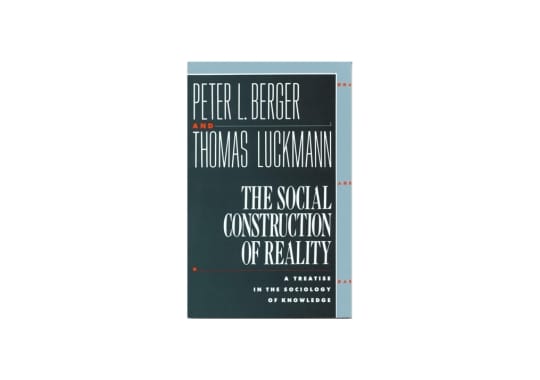
CHECK PRICE
"The Sociological Imagination" by C. Wright Mills
Mills' classic text encourages readers to connect personal troubles with larger social issues, fostering a critical perspective essential for sociological analysis.
Why We Love It:
"The Sociological Imagination" remains a cornerstone of sociological literature due to its profound insights into the intersection of personal experiences and societal structures. Mills challenges readers to transcend individualistic perspectives and recognize the broader social forces at play in shaping their lives.
By urging individuals to situate their personal troubles within the context of historical, cultural, and structural realities, the book empowers readers to develop a sociological imagination—a crucial skill for understanding and addressing social issues.
What We Should Know:
At its core, "The Sociological Imagination" emphasizes the interconnectedness between biography and history, between personal problems and public issues. Mills argues that private struggles are often symptomatic of larger societal problems, such as inequality, power dynamics, and cultural norms.
Through vivid examples and compelling narratives, he illustrates how individuals are both shaped by and contributors to the social world around them. By cultivating a sociological imagination, readers can transcend narrow viewpoints and recognize the complex interplay between personal agency and social structures.
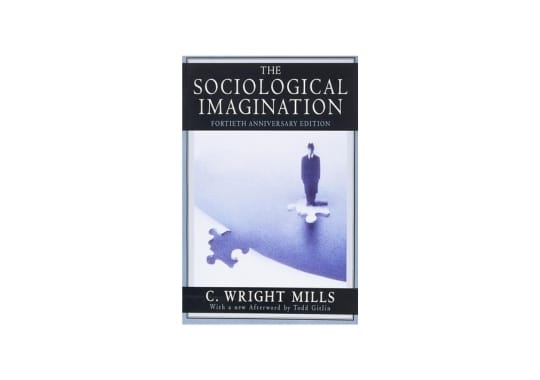
CHECK PRICE
"Sociology" by Anthony Giddens
Giddens offers a comprehensive overview of sociology, covering key concepts and theories essential for grasping the discipline's breadth.
Why We Love It:
"Sociology" by Anthony Giddens stands out for its thorough exploration of the discipline's fundamental concepts and theories. Giddens, a renowned sociologist, adeptly navigates the complex terrain of sociology, providing readers with a robust foundation upon which to build their understanding.
From the basics of social structure and agency to contemporary issues such as globalization and social change, the book offers a rich tapestry of sociological knowledge. Giddens' clear and engaging writing style makes complex ideas accessible, making this book an indispensable resource for students and scholars alike.
What We Should Know:
At its core, "Sociology" serves as a roadmap for navigating the diverse landscape of sociological inquiry. Giddens introduces readers to key theoretical perspectives, such as functionalism, conflict theory, and symbolic interactionism, illuminating the ways in which sociologists analyze and interpret social phenomena.
Moreover, the book explores pressing issues facing contemporary society, including inequality, globalization, and technological advancements, offering insightful reflections on the challenges and opportunities shaping the modern world. By engaging with Giddens' comprehensive overview, readers gain a deeper appreciation for the dynamic nature of sociology and its relevance to understanding the complexities of human society.
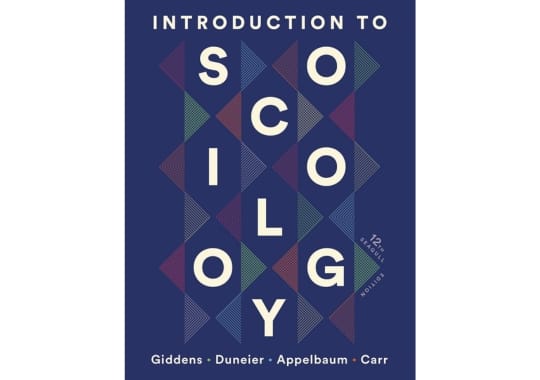
CHECK PRICE
"Sociology: A Down-to-Earth Approach" by James M. Henslin
Henslin's accessible approach makes complex sociological concepts understandable, making it an invaluable resource for students at any level.
Why We Love It:
"Sociology: A Down-to-Earth Approach" by James M. Henslin stands out for its accessibility and clarity in presenting complex sociological concepts. Henslin's writing style is engaging and relatable, making the material easily digestible for students at all levels of study.
Through vivid examples, real-life anecdotes, and thought-provoking illustrations, the book brings sociological theories and ideas to life, helping readers connect abstract concepts to their everyday experiences. Henslin's emphasis on real-world applications makes sociology relevant and applicable, fostering a deeper understanding and appreciation for the discipline.
What We Should Know:
At its core, "Sociology: A Down-to-Earth Approach" serves as a bridge between academic theory and practical understanding. Henslin adeptly breaks down complex sociological concepts into manageable components, guiding readers through key ideas and theories with clarity and precision.
From the study of socialization and culture to the exploration of social inequality and social change, the book covers a wide range of topics essential to the study of sociology. Moreover, Henslin incorporates contemporary issues and debates, providing readers with a timely and relevant exploration of the ever-evolving field of sociology.
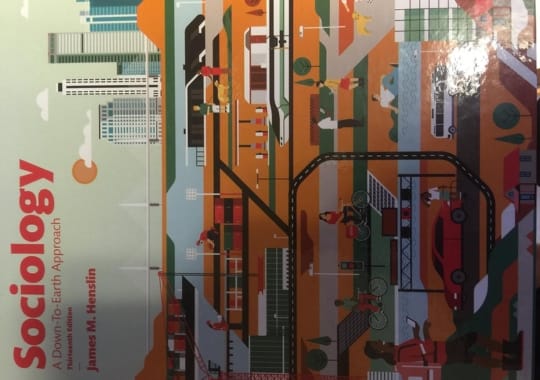
CHECK PRICE
"Gender Trouble" by Judith Butler
Butler's groundbreaking work challenges traditional notions of gender, inviting readers to reconsider the complexities of identity and social norms.
Why We Love It:
"Gender Trouble" by Judith Butler revolutionizes our understanding of gender by challenging conventional beliefs and norms. Butler's thought-provoking analysis deconstructs the binary view of gender as a fixed and immutable category, instead portraying it as fluid, performative, and socially constructed.
Through her exploration of gender performativity, Butler highlights the ways in which individuals actively create and negotiate their gender identities within societal frameworks.
What We Should Know:
At its core, "Gender Trouble" disrupts entrenched notions of gender essentialism and heteronormativity, paving the way for a more inclusive and expansive understanding of identity.
Butler's concept of gender performativity challenges readers to recognize the performative nature of gender expression, shedding light on the ways in which social norms and expectations shape individual experiences. Moreover, Butler's interrogation of power dynamics within gender relations underscores the interconnectedness of gender, race, class, and other axes of oppression.
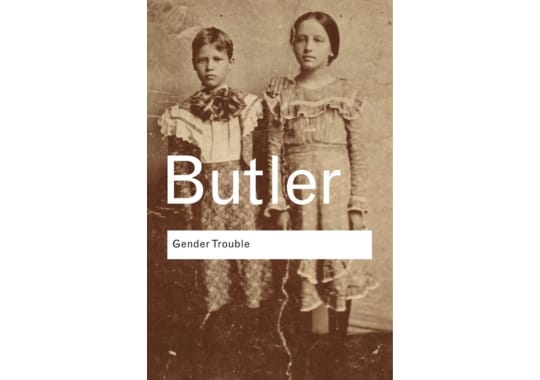
CHECK PRICE
"The Power Elite" by C. Wright Mills
Mills examines the concentration of power among elite groups, shedding light on the dynamics of authority and influence within society.
Why We Love It:
"The Power Elite" by C. Wright Mills offers a penetrating analysis of the structures of power and privilege that shape modern societies. Mills delves into the interconnected realms of government, business, and the military, revealing how elite groups wield disproportionate influence over societal institutions and policies.
Through meticulous research and incisive critique, Mills exposes the mechanisms through which power is consolidated and maintained, challenging readers to question the notion of democracy in an era dominated by the interests of the elite.
What We Should Know:
At its core, "The Power Elite" illuminates the intricate web of relationships and interests that perpetuate inequality and injustice. Mills argues that power is not evenly distributed within society but is instead concentrated among a select few who occupy positions of privilege and influence.
By examining the interplay between political, economic, and military institutions, Mills reveals the ways in which elite groups collaborate to maintain their dominance and suppress dissent. Moreover, Mills' analysis underscores the role of ideology in legitimizing and perpetuating existing power structures, highlighting the need for vigilant scrutiny and collective action.

CHECK PRICE
"The Black Atlantic: Modernity and Double Consciousness" by Paul Gilroy
Gilroy explores the intersection of race, culture, and identity, offering insights into the experiences of black communities in the modern world.
Why We Love It:
"The Black Atlantic: Modernity and Double Consciousness" by Paul Gilroy is a groundbreaking exploration of the complexities of black identity and culture in the modern era. Gilroy's interdisciplinary approach transcends traditional boundaries, weaving together insights from sociology, history, literature, and cultural studies.
By tracing the historical and cultural connections between African diasporic communities, Gilroy challenges essentialist notions of race and nationality, offering a nuanced understanding of the diverse experiences of black people worldwide. Through his concept of "double consciousness," Gilroy sheds light on the ways in which black individuals navigate multiple identities and cultural influences, enriching our understanding of the complexities of modern life.
What We Should Know:
At its core, "The Black Atlantic" underscores the interconnectedness of black experiences across geographical and historical contexts. Gilroy argues that the Atlantic Ocean serves as a fluid and dynamic space of cultural exchange and resistance, where black identities are continually reshaped and redefined.
By examining cultural expressions such as music, literature, and political activism, Gilroy reveals the ways in which black communities have forged connections and solidarities in the face of oppression and marginalization. Moreover, Gilroy's critique of traditional approaches to race and identity challenges readers to reconsider their assumptions and embrace a more inclusive and expansive understanding of human experience.
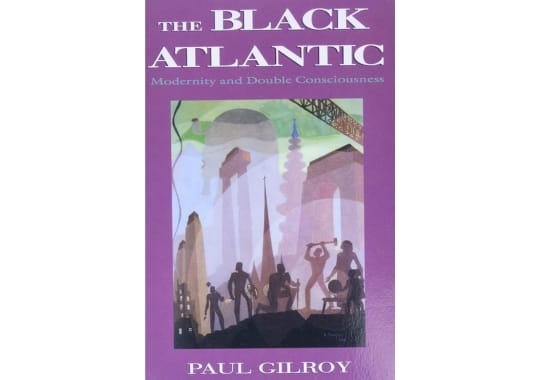
CHECK PRICE
"Globalization and Its Discontents" by Joseph Stiglitz
Stiglitz critiques the impact of globalization on social and economic inequality, providing a nuanced understanding of its complexities.
Why We Love It:
"Globalization and Its Discontents" by Joseph Stiglitz offers a penetrating critique of the consequences of globalization on societies worldwide. Stiglitz, a Nobel laureate in economics, brings his expertise to bear on the complex interplay between global economic forces and social inequality.
Through rigorous analysis and compelling argumentation, Stiglitz challenges the prevailing neoliberal orthodoxy, highlighting the adverse effects of globalization on marginalized communities and developing countries.
What We Should Know:
At its core, "Globalization and Its Discontents" exposes the inherent tensions and contradictions within the process of globalization. Stiglitz argues that while globalization has the potential to generate prosperity and innovation, its benefits are often unequally distributed, exacerbating social and economic inequality.
From the erosion of labor rights to the destabilization of local economies, Stiglitz documents the myriad ways in which globalization undermines social cohesion and exacerbates vulnerabilities. Moreover, Stiglitz offers alternatives to the current model of globalization, advocating for reforms that prioritize human welfare and environmental sustainability over narrow economic interests.
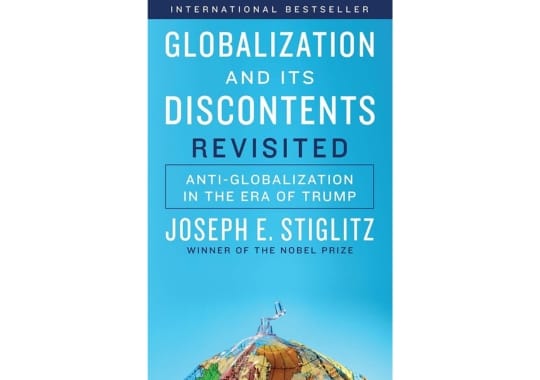
CHECK PRICE
"The Presentation of Self in Everyday Life" by Erving Goffman
Goffman examines how individuals construct identities in social interactions, offering valuable insights into the intricacies of human behavior.
Why We Love It:
"The Presentation of Self in Everyday Life" by Erving Goffman revolutionizes our understanding of social interaction by introducing the concept of dramaturgy. Goffman draws parallels between social life and a theatrical performance, arguing that individuals engage in impression management to shape the perceptions of others.
Through vivid examples and astute observations, Goffman unveils the intricacies of everyday interactions, from the nuances of body language to the strategic use of props and costumes. By highlighting the performative nature of social identity, Goffman invites readers to critically examine their own roles and behaviors within social contexts, fostering a deeper understanding of human behavior and social dynamics.
What We Should Know:
At its core, "The Presentation of Self in Everyday Life" offers a nuanced exploration of the ways in which individuals navigate social situations and construct their identities. Goffman introduces readers to concepts such as front stage and back stage behavior, highlighting the distinctions between public performances and private interactions.
Moreover, Goffman emphasizes the role of social scripts and cultural norms in shaping our conduct, illustrating how individuals adapt their behavior to fit the expectations of different social contexts.
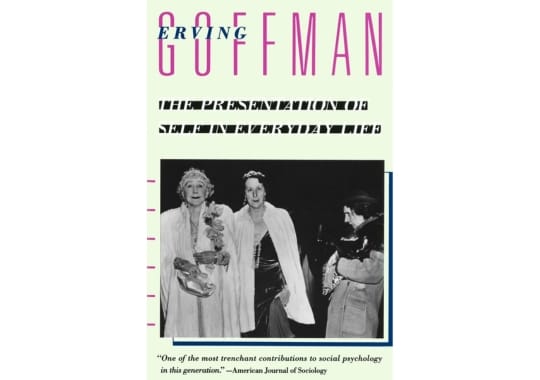
CHECK PRICE
"Glass, Race, Gender, and Crime: The Social Realities of Justice in America" by Greg Barak
Barak's examination of race, gender, and crime highlights systemic inequalities within the criminal justice system, encouraging readers to confront issues of social justice.
Why We Love It:
"Glass, Race, Gender, and Crime" by Greg Barak offers a critical analysis of the intersectionality of race, gender, and crime within the American criminal justice system. Barak meticulously examines how systemic biases and discriminatory practices perpetuate inequalities in law enforcement, prosecution, and sentencing.
Through empirical research and compelling case studies, Barak exposes the disproportionate impact of the criminal justice system on marginalized communities, particularly Black and Hispanic individuals, as well as women.
What We Should Know:
At its core, "Glass, Race, Gender, and Crime" underscores the need to address systemic inequalities within the criminal justice system. Barak's analysis reveals how race, gender, and socioeconomic status intersect to shape individuals' experiences of policing, incarceration, and reentry into society.
From disparities in arrest rates to sentencing disparities and the collateral consequences of criminal convictions, Barak documents the multifaceted ways in which marginalized communities are disadvantaged by the criminal justice system. Moreover, Barak calls attention to the role of structural factors such as poverty, lack of access to education, and over-policing in perpetuating cycles of crime and incarceration.
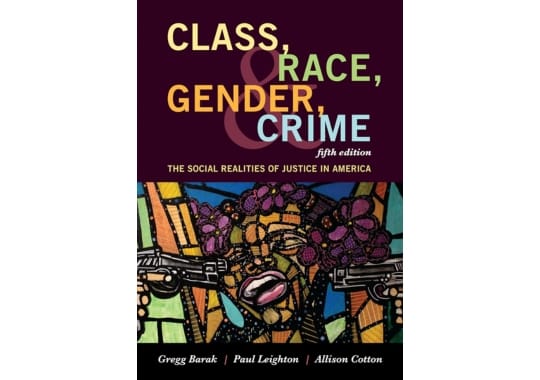
CHECK PRICE
Related Article

Frequently Asked Questions FAQs
Are these books suitable for beginners in sociology?
Absolutely! Many of these books are written with a general audience in mind and provide excellent introductions to sociological concepts.
Do these books cover diverse sociological perspectives?
Yes, we've curated a list that spans a wide range of sociological topics and perspectives, including classics, contemporary works, and diverse voices.
Are there any books that focus on global sociology?
Certainly! Several books on our list explore global sociological issues, such as the impact of capitalism, culture, and inequality on a global scale.
Conclusion
Mastering sociology requires engagement with diverse perspectives and theories. By incorporating these ten essential books into their study regimen, students can deepen their understanding of sociological concepts and enhance their performance in exams. Remember, a multifaceted approach to learning sociology will equip you with the critical thinking skills necessary to navigate the complexities of society effectively. The best books for sociology featured in this guide offer a diverse array of insights, from classic sociological theories to contemporary examinations of pressing societal issues.










